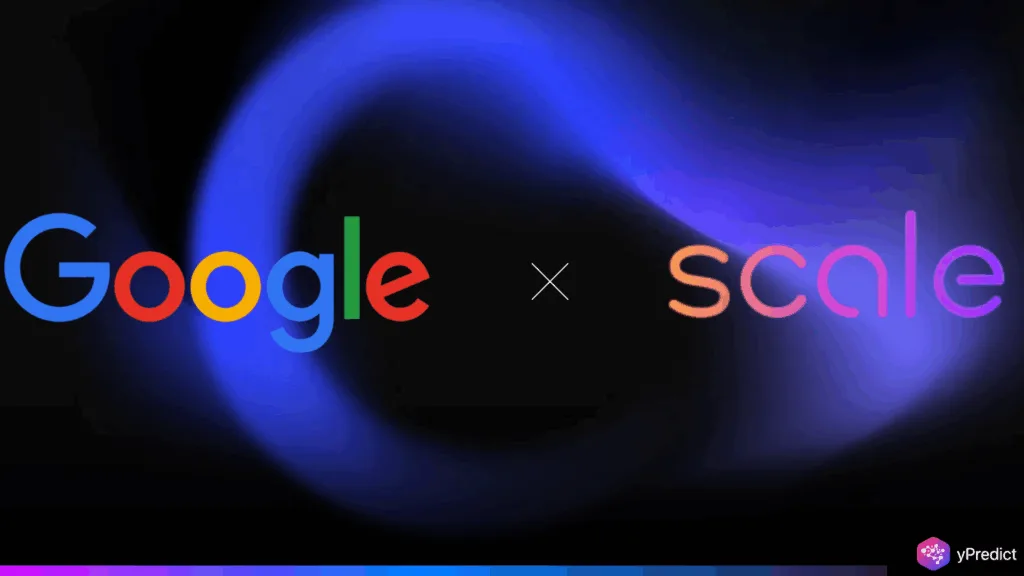
Google plans to sever ties with Scale AI following Meta’s acquisition of a 49% stake in the startup. The move jeopardizes a $200 million contract for human-labeled AI training data meant to support Google’s Gemini project. Google has already started talks with rival data providers. Meta’s investment valued Scale at $29 billion, double its previous worth. However, the deal has triggered backlash from Scale’s biggest customers. Many now fear proprietary AI data shared with Scale could be exposed to Meta. Scale insists its business remains strong and is committed to data protection, but declined to comment on Google specifically.
AI Labs Rethink Data Strategy Amid Trust Concerns
Meta’s surprise acquisition has spooked Scale AI’s top clients. Microsoft, OpenAI, and Elon Musk’s xAI are reconsidering their contracts. OpenAI had already begun pulling back, using Scale only as a minor vendor. These labs worry Meta’s involvement could expose sensitive data like training materials and prototype models. Since data labeling often includes access to unreleased tech and internal roadmaps, Scale’s neutrality is now under scrutiny. Customers fear Meta could gain competitive insights. Google, previously the largest client, reportedly spent $150 million on Scale services in 2024. Now, it’s fast-tracking moves to exit all key contracts.
As labs push to keep control, the shift marks a broader industry trend: AI leaders are no longer willing to risk their IP by trusting vendors that serve rivals. Scale’s revenue last year was $870 million, but with its core business concentrated around a few clients, losing Google and others could be a major blow. Meanwhile, Meta’s CEO Mark Zuckerberg, has appointed Scale’s Alexandr Wang to lead Meta’s internal AI push. While Scale says it serves many industries, including defense and automotive, its future dominance in generative AI labeling looks shaky as customers reevaluate partnerships under the lens of corporate competition.
Scale’s Rivals Seize the Moment
Competitors like Labelbox, Turing, and Handshake are quickly capturing clients who are ditching Scale. Labelbox predicts “hundreds of millions” in new revenue this year from ex-Scale customers. Turing CEO Jonathan Siddharth called the Meta-Scale deal a turning point, declaring neutrality now a must-have. Handshake, which connects top PhDs with AI labs, saw demand triple overnight. Startups like Mercor are building tech to help labs recruit in-house data labelers, citing higher security and control. Generative AI labs now favor internal teams or vendors without ties to competitors. What once made Scale valuable, massive scale and fast delivery, is now less important than trust.
The exit from Scale represents more than just a vendor change; it reflects a strategic shift across the industry. AI companies now prioritize sovereignty and confidentiality in their training pipelines. Experts say this could fragment the data-labeling ecosystem, with more specialized providers emerging. With Meta a stakeholder, Scale is now viewed less as a neutral partner and more as a competitive risk. While Scale continues to dominate enterprise and government contracts, its future in the generative AI segment is under threat. As the industry matures, control over training data is becoming a defining competitive edge, and one company won’t outsource lightly anymore.
Scale’s Future in Question as CEO Departs
Scale AI CEO Alexandr Wang is joining Meta to help lead its AI division, creating further uncertainty. While Scale will continue operations independently, losing its founder raises questions about vision and client trust. The Meta deal may benefit investors but could hurt long-term partnerships. AI labs now seek safer alternatives, and some are already moving data labeling in-house. With most of Scale’s revenue dependent on a few large clients, this shift could be costly. Scale’s dominance in AI data annotation is slipping fast, reshaping how the industry thinks about vendor relationships, competition, and data control in the generative AI arms race.





